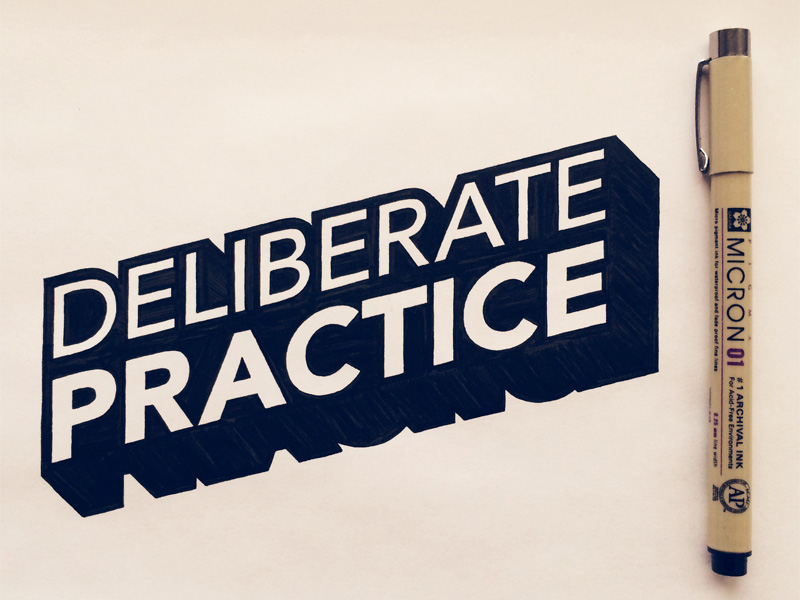For those of you who have dipped into my books and are frequent readers of my blog and tweets you’ll know that I’m fascinated by practice and training – specifically, what constitutes quality of practice and effective training.
I think Rio Ferdinand’s letter to his 12 year old self is an insightful example of the importance of the fundamentals of deliberate or deep practice (I happen to call it intentional practice which I talk about in Soccer Brain and Soccer tough II). Please be warned there is a great deal of swearing in Rio’s article.
Rio grew up in a tough urban area in London – a place called Peckham. And in the article he recalls how, as a 12 year old, he had to walk through a gypsy camp to reach a field where a select 20-30 young adults played football. From the article:
The pitch is just on the other side of the path. Only 100 yards away. Not much farther to go. You just have to get through this gypsy camp. People are gonna call out to you. They’re gonna say **** when you walk by. You know what these camps are like. They’re hairy. They’re dangerous. And filled with dogs. I know, you hate dogs.
And when you finally get to the hole in the chain link fence, pull back the barbed wire and climb through to get to the pitch at Burgess Park, it is going be worth it, mate.
But you’re not going to get to play right away. You’re going to have to prove yourself. Twenty-five, 30 guys are already there and they’re not interested in having some skinny kids on the field with them. These are big, grown men. So it’s all about who’s the most aggressive, who’s the loudest. And right now, that’s not gonna be you.
But keep going back. Every week, just go. Even if you only sit on the side. Even if you only kick the ball about with Gavin. They just need to notice you once. And one day, they finally will.
I love that!!! Keep going back…every week, just go.
Was he scared? Probably. Was there doubt swirling around in his mind? Absolutely. But he knew deep down that the group of players that had assembled on the pitch beyond the gypsy camp offered him a way to develop his game beyond what he dreamt was possible.
So Rio Ferdinand spent time developing his game with older players – much older players. Players who were men. Players who were quicker than him, stronger than him, better than him. Again, from Rio`s article:
And you’re going to play football. And you’re going to play against real men. These are big African guys — Nigerians, Ghanaians — fast, strong guys. And they’re going to kick the hell out of you. If you hold onto the ball for too long — bam! — they’ll knock you down without even thinking about it.
Don’t cry. Don’t show emotion. Don’t say anything. You want to go mad, but this isn’t like playing against one of your friends, where you can clap back, “What you doin’?” You’re dealing with big guys and all of their mates, so keep yourself in check.
Rio had to stretch himself. He had to learn self-management. He was pressed to develop his skill, do things quicker, faster. He had to be uncompromising…all at 12 years old. No wonder he became one of the foremost defenders in world soccer.
Interestingly, in a chapter in Soccer Tough I describe the development of former English Premier League striker Kevin Gallen, and how he experienced similar pressure to Rio by playing constantly with his older brothers. And in Soccer Tough II I detail how Rachel Yankey, England’s most capped player, pretended to be a boy to get a game of football, a decision which helped her to deal with the ball quicker. It imprinted on her mind and body a speed and aggressiveness that enabled her to reach the pinnacle of the women`s game. Rio, Kevin and Rachel were subject to Intentional Practice…they trained with a purpose, with focus and they were stretched by bigger, stronger, better players than themselves.
In my books I divide Intentional Practice into four areas. Let’s have a brief look at each one:
1. Interesting: Intentional practice is interesting. It captivates attention and holds. It absorbs mindset. This doesn’t mean that it’s always fun, but it ismeaningful to the individual in question.
As a coach are you making your training sessions interesting? Are you including sessions that help players to stay alert, alive and switched on?
2. Intense: Intentional practice is hard. It stretches you and pushes you out of your comfort zone. It demands more from you. It requires an inner voice that energises and shouts “push”.
As a player are you stretching your comfort zone like Rio? Are you demanding more from yourself?
3. Internalised: Intentional practice requires thought. It’s not just action without judgement. That ‘just do it’ attitude and mindset is for match day. During training a player should be constantly examining the process of his practice:
“Am I keeping my body shape?”
“Did I get into the right position like I wanted to?”
“Have I taken more shots than yesterday?”
“Am I timing my jumps on corners and free kicks better?”
4. Integrated: Just as players are self-aware during intentional practice they are also integrating their personal reflections with feedback from their coach.
As a coach your feedback is a crucial determinant of their successful transition in the learning process. They can internalise and improve their awareness and understanding of their game but they can’t see themselves play in the moment.
As a coach is your voice reaching every player out there? Are you able to cast your expert eye onto every individual?
Deliberate or deep practice (or as I call it, intentional practice) is vital for skill development – technically, mentally and physically. Are you utilising the art and science of intentional practice in your training sessions and in your coaching culture? If you`re a player are you learning with intention?
Remember, to take a few minutes to read about how Rio grew as a player…enjoy the article, it really is a great insight into the development of a champion.




